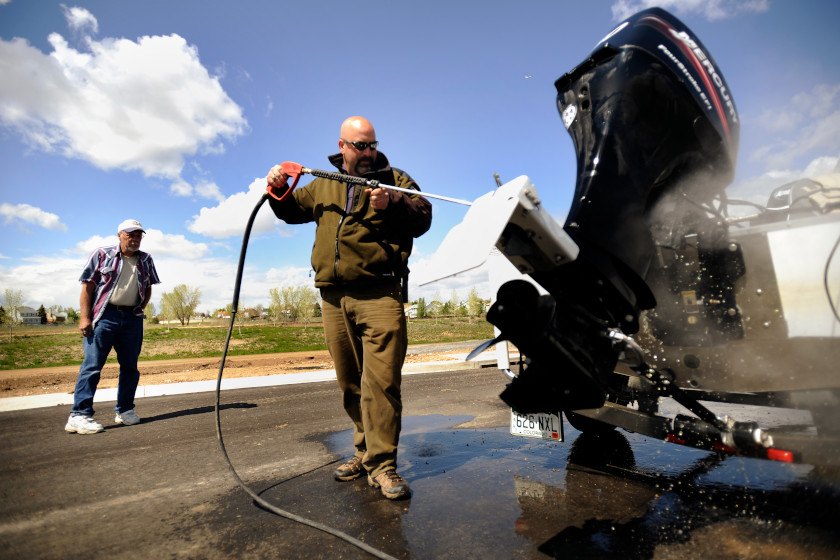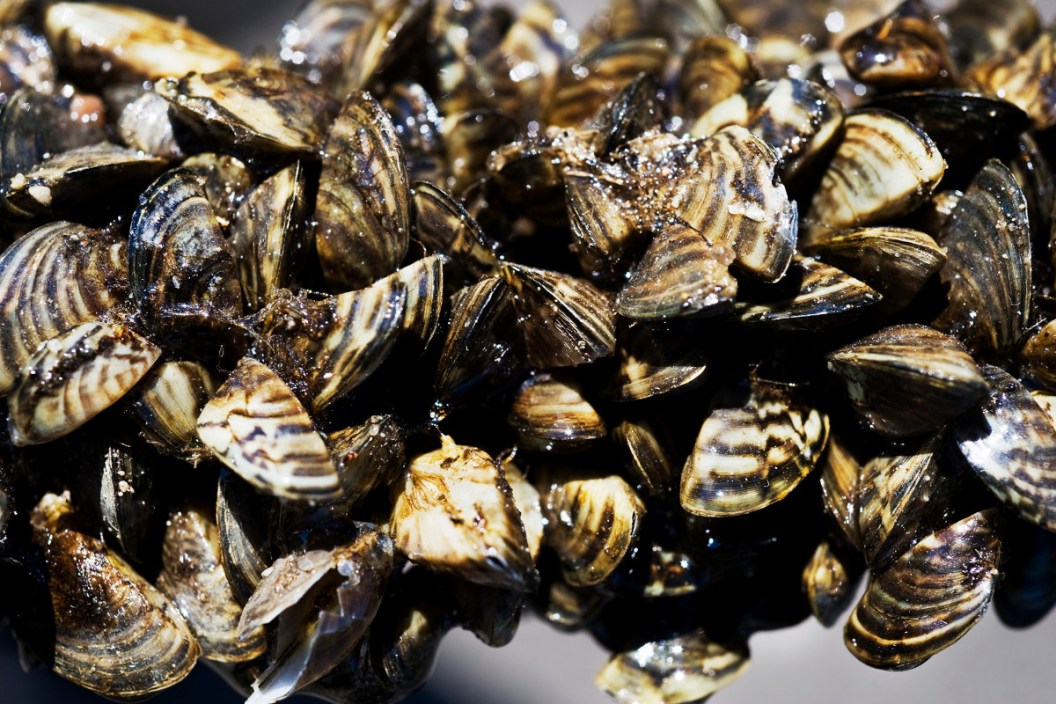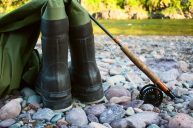If you've fished anywhere in the Midwest in recent years, no doubt you've seen all the warning signs about "aquatic hitchhikers" at boat ramps and docks. In some states, anglers are required to submit their boat hulls and live wells to mandatory inspections before even being allowed to launch. Some lakes have designated cleaning areas where boats must be power washed and scrubbed before being allowed to launch.
This is all due to invasive zebra mussels. These freshwater creatures have become a big problem since they were first discovered in North America back in the 1980s. Small as they may be, the spread of zebra mussels threatens to upset the delicate ecosystems of many a body of water.
It may seem like an overblown fear at first, but once you understand what these infestations can do to your favorite fisheries, it becomes clear why authorities are so concerned about controlling these pests and keeping them from spreading any further.
What are zebra mussels anyway?

Getty Images: AFP
The zebra mussel, or "Dreissena polymorpha," is a small freshwater shellfish. Fortunately, adult zebra mussels are easy to identify thanks to their triangular shells that are usually no more than an inch long. Their shells are typically brown and are marked by a distinctive series of stripes, thus the name. They are filter feeders, consuming small phytoplankton. The adults have a habit of clinging to hard surfaces, which is how they end up on boat hulls. Because they can survive for days out of the water, if the boat goes to a different lake, the mussels can drop off and infest waters that didn't previously have zebra mussels.
This species goes through three distinct life stages, beginning with larval. At that point, they are microscopic and too small to see with the naked eye. Larval zebra mussels float with the currents and can be transported via bait buckets and live wells without anglers ever knowing they are there. Once in a new place, the adult mussels spread quickly. A single female can produce upwards of one million eggs in her lifetime. It's not hard to see how the problem can quickly get out of hand.
Once established in a lake or river, zebra mussels cause a plethora of ecological issues. First, they upset the natural food web by competing with native mussels. Sometimes they will also attach themselves directly to the native mussels and essentially choke them out. Second, they produce a lot of waste which, according to the Florida Fish and Wildlife Commission, can degrade underwater environments. For example, zebra mussels are often responsible for increasing the water clarity in a lake. While that sounds great for swimmers and boaters, when this happens, it leads to more sunlight and more growth of aquatic plants. If your favorite lake has gotten noticeably weedier in recent years, zebra mussels may be to blame.
Then there's the fact that these pests latch themselves onto anything and everything. Boat docks, propellers, and hulls can get completely encrusted with them. If not properly cleaned off, they can even damage boats if they get into the engine and cover the hull.
How did they get here?

Getty Images: sdphotography
According to the National Park Service, it's thought that zebra mussels first arrived in the United States via the ballast water of large ships. The NPS notes they were likely picked up by ships traveling the Black Sea or Caspian Sea in Russia and Ukraine. From there, they were transported to Europe and eventually the U.S., and were first documented in Lake St. Clair in 1988. By that time the mussels were in the St. Lawrence Seaway, and from there, they spread quickly through a series of natural rivers and man-made waterways.
The mussels then spread throughout the Great Lakes the Mississippi River Basin. According to the U.S. Geological Survey, the states of Michigan, Wisconsin, and Minnesota are the most heavily-infested states right now. However, the mussels have quickly spread to large parts of Texas, Missouri, Oklahoma, Kansas, Iowa, Ohio, New York, and the Dakotas. They are also starting to be found in places like Utah and Colorado, likely unwittingly transported by boaters across thousands of miles.
How do you get rid of zebra mussels?

Getty Images: Joe Amon
Sadly, most state and federal agencies note that once zebra mussels have become established in a watershed, not much can be done to stop them. There are few predators here in North America that will feed on them. Some state wildlife agencies, like the Minnesota Department of Natural Resources, have experimented with pesticides in infected lakes. Unfortunately, the effectiveness of many of these types of treatments has proven to be limited so far. Hopefully, science can advance a better method of wiping them out completely at some point in the near future.
In the meantime, the best defense against these invaders is to prevent them from spreading in the first place. Experts recommend removing any visible adult zebra mussels from your boat motor or hull by hand when you see them. But remember, the microscopic larvae can easily travel to a new lake or river in water in anything that holds water. This includes bilge pumps, live wells, and ballast tanks. That's why it's important not to transport water between lakes. Empty all these water holdings entirely.
Experts also recommend using a high-pressure washer to spray boats free of possible contaminants and then allowing the boat to dry for five days before moving to a new water body. Use hot water if possible, because it does a more efficient job of killing the larvae. The Wisconsin Department of Natural Resources notes that are special paints which can be applied to boat hulls to prevent mussels from latching on and hitching a ride to new water systems.
In short, anglers and boaters must do their part to help control zebra mussel populations. It's worth noting that most states now have laws in place restricting access to waters known to host populations. You can get in trouble for transporting zebra mussels, either knowingly or unknowingly. Pay close attention to the signs at the local boat launches; they're there to warn you how to avoid an uncomfortable talk with the local game warden. Most importantly, pay attention to the hull of your boat, even in waters not known for this species. Reported sightings can help authorities pin-point a problem lake before it spreads to other nearby water bodies.
For more outdoor content from Travis Smola, be sure to follow him on Twitter and Instagram For original videos, check out his Geocaching and Outdoors with Travis YouTube channels.




